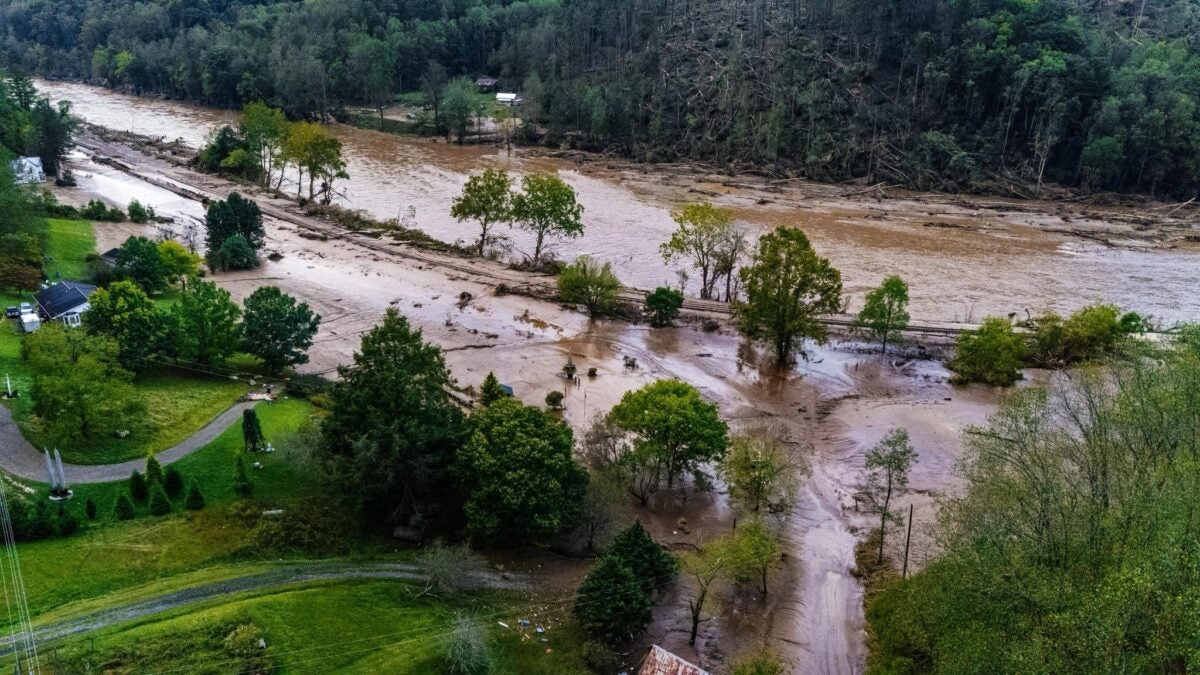This story originally appeared on Trains.com.
ERWIN, Tenn. — CSX Transportation’s former Clinchfield Railroad mainline has seen devastating impacts from Hurricane Helene’s once-in-a-generation flood. It is still too early to determine the full extent of damages, but photos along the famed Clinchfield route are revealing extensive damage exacerbated by the region’s remoteness. High waters are prohibiting emergency responders and railroad officials from gaining access to communities along the right of way, and in some cases, roadway and railroad bridges have been compromised or destroyed.
With roadways out of service and railroad washouts preventing inspections and repair, CSX’s Blue Ridge Subdivision and much of its Clinchfield line are likely to remain out of service for the foreseeable future. It will be several days, at the earliest, before the railroad is able to provide full details on the impact and next steps.

Widespread damage was seen along the right of way between milepost Z 138.0 at Erwin and Spruce Pine, North Carolina, at Z 182.0, a distance of 44 miles. An approximate 375-foot bridge crossing the Nolichucky River at Poplar is gone, with only concrete piers protruding from swollen, muddy waters. The railroad follows the banks of the Nolichucky and North Toe rivers for about 40 miles between Erwin and Spruce Pine. In downtown Spruce Pine, waters were 8-9 feet above the right of way, almost up to the roof of the city’s restored train depot.
The track outage affects mostly through traffic in the form of four daily merchandise trains, an M652/M653 pair that connect Russell, Kentucky, with Hamlet, North Carolina, and M692/M693 between Russell and Waycross, Georgia. Coal trains use the old Clinchfield to serve utility customers in the Carolinas, notably Duke Energy’s Cliffside steam plant in Brice, North Carolina, plus corresponding coal empties, and occasional unit ethanol trains terminating near Charlotte, North Carolina. Infrequent grain trains contribute to an average of five to seven trains that use the Clinchfield daily.
It is likely CSX will have to detour around the Clinchfield using routes like the I-64 corridor on the former Chesapeake & Ohio between Russell and Richmond, Virginia, or the former Louisville & Nashville from Cincinnati into Tennessee and Georgia.

More than 20 inches of rain fell across much of western North Carolina and eastern Tennessee this past week. The narrowness of the river valleys along this route intensified the force of the water, making damage more significant compared to areas with wider valleys.
Farther south, Norfolk Southern sustained damage to its former Southern Railway line between Morristown, Tennessee, and Salisbury, North Carolina, notably between Marshall, North Carolina, and Old Fort, North Carolina.
No additional rain is expected this weekend, but water levels will remain elevated through the rest of the weekend and communities are still concerned that some dams may breach as a result of sustained high water levels.
The National Weather Service is calling the weather system the region’s most significant event of the modern era.







